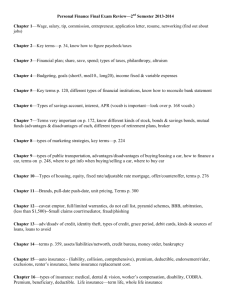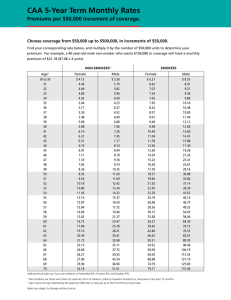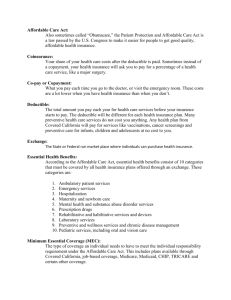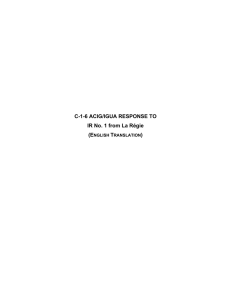What Determines How Much I Have to Pay for Coverage?
advertisement
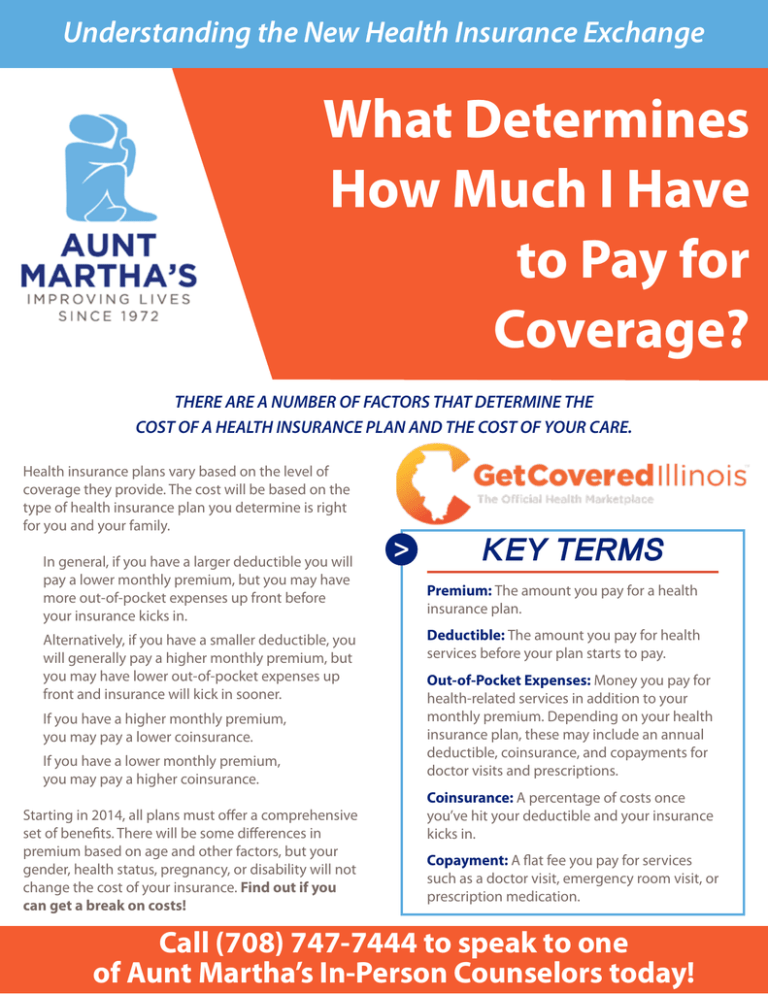
Understanding the New Health Insurance Exchange What Determines How Much I Have to Pay for Coverage? THERE ARE A NUMBER OF FACTORS THAT DETERMINE THE COST OF A HEALTH INSURANCE PLAN AND THE COST OF YOUR CARE. Health insurance plans vary based on the level of coverage they provide. The cost will be based on the type of health insurance plan you determine is right for you and your family. In general, if you have a larger deductible you will pay a lower monthly premium, but you may have more out-of-pocket expenses up front before your insurance kicks in. Alternatively, if you have a smaller deductible, you will generally pay a higher monthly premium, but you may have lower out-of-pocket expenses up front and insurance will kick in sooner. If you have a higher monthly premium, you may pay a lower coinsurance. If you have a lower monthly premium, you may pay a higher coinsurance. Starting in 2014, all plans must offer a comprehensive set of benefits. There will be some differences in premium based on age and other factors, but your gender, health status, pregnancy, or disability will not change the cost of your insurance. Find out if you can get a break on costs! > KEY TERMS Premium: The amount you pay for a health insurance plan. Deductible: The amount you pay for health services before your plan starts to pay. Out-of-Pocket Expenses: Money you pay for health-related services in addition to your monthly premium. Depending on your health insurance plan, these may include an annual deductible, coinsurance, and copayments for doctor visits and prescriptions. Coinsurance: A percentage of costs once you’ve hit your deductible and your insurance kicks in. Copayment: A flat fee you pay for services such as a doctor visit, emergency room visit, or prescription medication. Call (708) 747-7444 to speak to one of Aunt Martha’s In-Person Counselors today! You have options for finding affordable health insurance that fits your unique needs. Get a Break on Costs Depending on your income, you may be eligible for monthly help paying your health insurance premium. TAX CREDITS: Starting in 2014, there will be a new monthly premium tax credit you may be able to use right away to lower your monthly premium costs and you may qualify for a subsidy that will reduce your out-of-pocket costs. • The federal government will send that money directly to your insurance company every month. This financial help will lower your monthly insurance premium. • How much this financial help will be depends on your income and family size. You’ll be able to calculate whether you are eligible for a tax credit before you enroll in a plan. » Individuals: A single person earning between $11,490 and $45,960 will be able to qualify. » Families: The amount of income you can have and still qualify varies according to the size of your family. As an example, a family of four with household income between $23,550 and $94,200 will be able to qualify. EXTRA HELP: If your household income is in a certain range—between 100 percent and 250 percent of the federal poverty level which is $11,490 and $28,725 for individuals and between $23,550 and $58,875 for a family of four (adjusts based on family size)—you may be able to get extra help paying out of pocket costs such as deductibles and coinsurance. These are known as cost sharing subsidies. OPTIONS FOR FAMILIES: There will be help for working families through programs like the Children’s Health Insurance Program (CHIP) and Medicaid. • CHIP provides coverage for children so that they’ll be able to get routine check-ups, dental care, and immunizations to keep them healthy. They will also get physician visits, prescription medications and hospital care when they’re sick. • Medicaid offers $0 premium or low cost coverage for your healthcare needs based on income level and family size. You’ll be able to buy insurance through Illinois’ Health Insurance Exchange or directly from an insurance company, but the tax credits in the law to help pay for insurance will be available only if you purchase through the Illinois Health Insurance Exchange.
